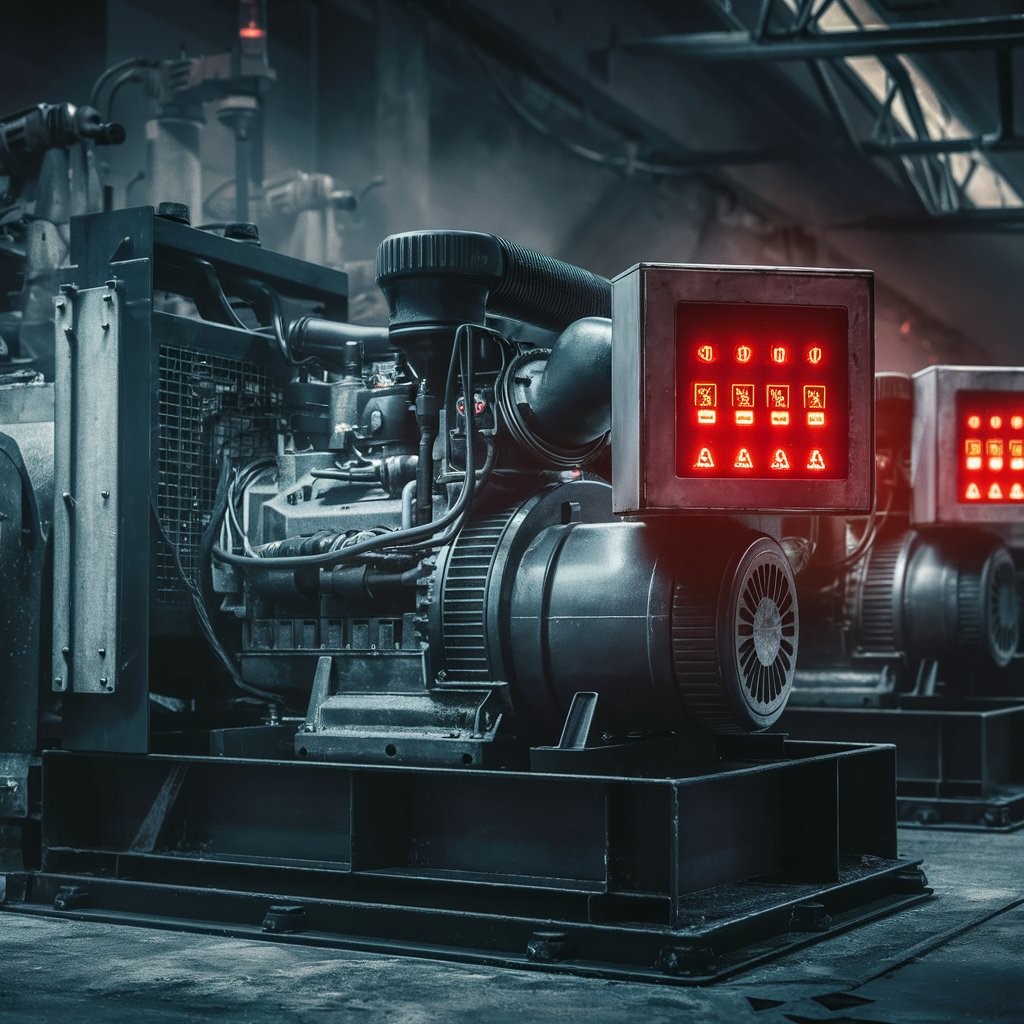Generators are essential during a power outage to provide backup power; however, it is frustrating if they cannot supply power. That is why a generator not producing power must be diagnosed to avoid causing permanent damage. Regardless of how simple or serious the problem is, knowing the root causes of power failure will save you time and money.
Let’s go on to explore the 10 most common reasons for generators being unable to produce power.
Why is the Generator Not Producing Power?
If your generator isn’t producing power, here are several reasons why. Electric problems and issues within the fuel system are among the few, and determining the cause as early as possible can prevent more damage. Here are the 10 most common reasons for a generator not producing power:
- Tripped Circuit Breaker
The most frequent reason your generator does not work is that it has tripped its circuit breaker. Circuit breakers protect a generator and its parts from surges or electrical faults. The circuit breaker automatically causes the generator to enter fault or overload mode and disconnects the power.
- Solution: If your generator’s circuit breaker has tripped, check it and reset it. Once reset, check the load on the generator to make sure it’s not overloaded; otherwise, it will trip again.
- Loss of Residual Magnetism
Residual magnetism is necessary to turn on the generator’s power generation. It triggers the alternator to create a voltage output. The generator cannot work with low magnetism or for long periods when inactive.
- Solution: The field-flashing method can restore the remaining magnetism. Here, the concept is to connect an auxiliary DC source through the external controller, which restores the alternator’s magnetism.
- Worn or Damaged Brushes
In most generators, brushes transfer the current between the rotating rotor and the stationary part, the stator. When the brushes wear out, power is reduced or even stopped from being generated.
- Solution: You should inspect whether brushes have worn out or become damaged, then replace all used brushes with new ones so that maintenance and replacement of the mentioned parts ensure that it cannot occur.
- Automatic Voltage Regulator (AVR) Faults
The AVR maintains the generator’s voltage level within the safety limits within which it should be operating. If the AVR is faulty, the generator will either not generate any voltage or generate unstable and unsafe voltages.
- Solution: Look for signs of malfunction and apply a voltage check with a multimeter on the AVR. Replacing a faulty AVR can also get the generator working again.
- Dirty or Corroded Connections
Dirty, loose, or corroded electrical connections prevent the smooth flow of electricity within a generator’s system. After a certain period, dirt, dust, and corrosion build up in many generators, particularly in the connection terminals and wires.
- Solution: Electrical connections should be regularly cleaned and tightened to ensure good working conditions. In the long run, applying anti-corrosion spray or terminal grease may prevent this.
- Low Oil Levels or Pressure
Most modern generators have low-oil shutoff features that prevent the engine from starting if the oil level or pressure is low. In this particular case, the generator will shut off the power supply if the oil level falls below the threshold for safe operation.
- Solution: The oil should be checked and replenished if necessary. The recommended type and cleaning of the oil used should be followed. Regular oil changes and monitoring of oil levels will help it run well.
- Clogged Fuel System
Another reason the generator may fail to produce power is fuel system problems. A clogged filter or lines can prevent fuel from reaching the engine, preventing the generator from starting and producing power.
- Solution: Check the fuel filter and fuel lines for obstructions. If the fuel filter is clogged, replace it and clean debris from the fuel system. For peak performance, always use fresh, clean fuel.
- Overloaded Generator
An over-loaded generator is one of the most significant causes it would break down, failing to produce any electricity. Powering too many appliances and exceeding the generator’s limit could easily cut off power and even shut off the generator.
- Solution: Unload some of the load from the generator and then try to restart it. Also, check that the total wattage of all the connected devices is within the generator’s capacity.
- Faulty Spark Plug
A spark plug is the lifeline of every generator that starts the engine. If one is faulty or dirty, chances are that a generator may be unable to produce any power in its engine; otherwise, it produces negligible power.
- Solution: Check the spark plug for wear, carbon buildup, and damage. If necessary, replace it and set its gap to the correct specifications for the best ignition.
- Engine Problems
Engine problems, including compression loss or fuel injector failure, can also make the generator not produce power. These mechanical faults usually require the services of professionals to diagnose and repair.
- Solution: If the engine has an issue, refer to the generator manual or a technician for further assessment. Regular oil changes and air filter cleaning will prevent engine problems from arising.
Final Thoughts
Resolving these 10 common problems yourself can help you understand why is the generator not producing power and restore functionality as soon as possible. Knowing when to call professionals will help you understand what needs adjustment. Most of the causes can be avoided with regular care, such as changing the oil, cleaning the connections, and not overloading the generator.
If your generator still isn’t running, even after checking for common problems, contact experts like Myrtle Beach Generators immediately so that the problem can be solved quickly and effectively.
Learn more by visiting by sending an email to william@mb-gen.com. By addressing issues effectively, your generator will be up and running!
Commonly Asked Questions on Why Generators Don’t Produce Power
- Why is my generator running but not producing power?
Check for problems with your generator, such as a tripped circuit breaker, low oil levels, or AVR malfunction. Inspect the parts to determine the cause.
- How can I regain my generator’s power?
Check the circuit breaker and oil levels. If the power can be restored by cleaning the fuel system and inspecting electrical connections, then you can do it yourself.
- Will a dirty spark plug prevent my generator from producing power?
Yes, it will prevent the engine from igniting correctly, meaning that the generator will not produce power if the spark plug is either dirty or worn out. Replace the spark plug if necessary.
- How can I tell if my generator is overloaded?
Check the total wattage of the items you are running. If the load exceeds the generator’s capacity, your power will be cut off.
- Does a faulty AVR hinder a generator’s power production?
Yes, if the AVR is faulty, it might not allow a generator to produce stable or enough power. You can test and replace it if needed.









